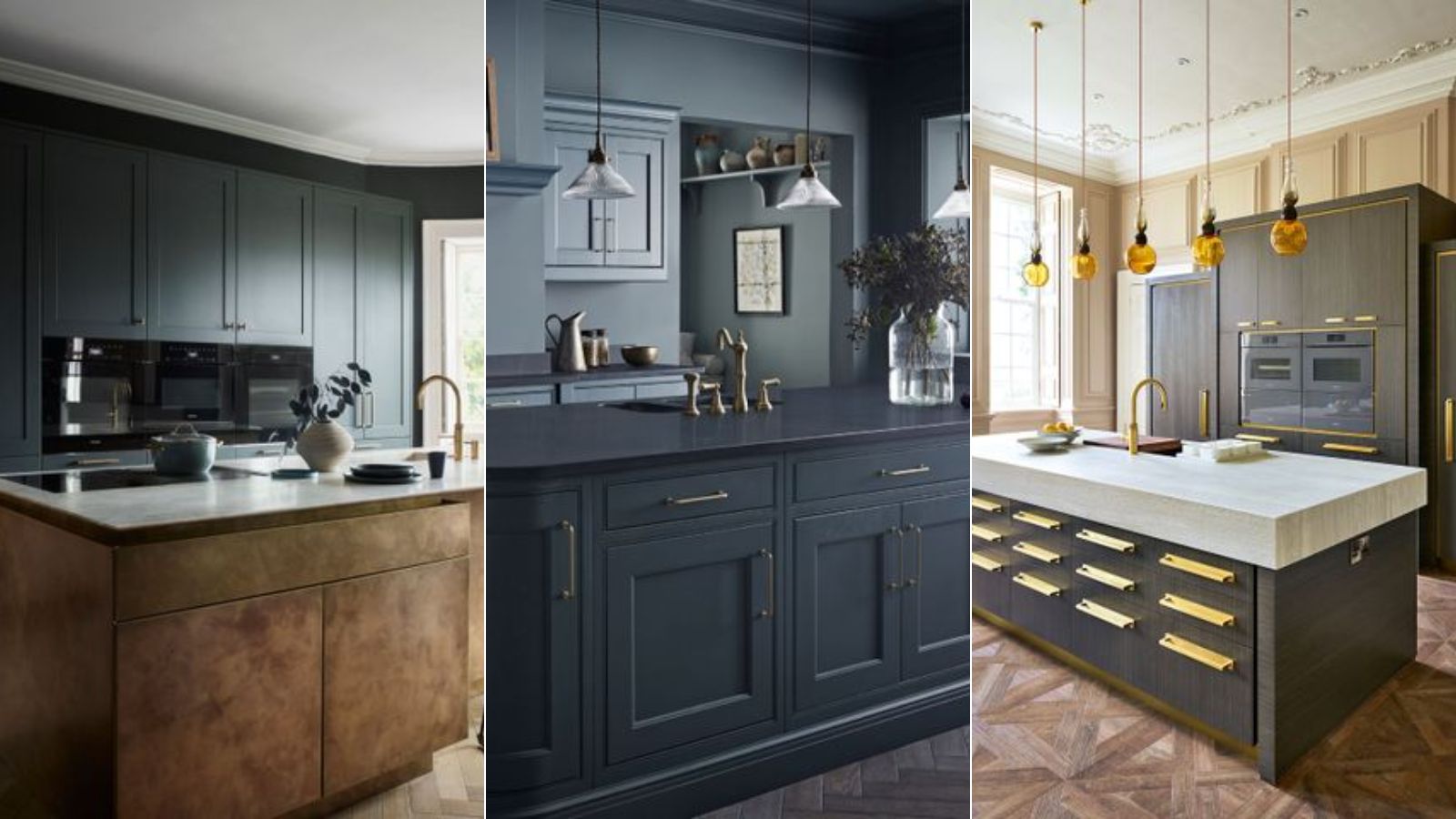
When designing a kitchen, one of the key decisions to make is whether to have a sink or a stove on your kitchen island. This choice can greatly impact the functionality and overall aesthetic of your kitchen – however there is rarely space for both, so to help you choose the best option we explain the factors to consider.
Whether a kitchen island should be fitted with a sink or a stove depends on you and your family's cooking habits, lifestyle and kitchen space. Being able to centralize a sink or stove in your kitchen can make for a more efficient workflow, and make it easy to entertain while using the kitchen, however, both options have their benefits and drawbacks.
Below, are the positives and negatives of designing a kitchen island with a stove or sink, helping to guide your choice according to your personal needs.
Should you have a sink or stove on a kitchen island?
'Consider your usage scenarios,' recommends Yama Jason, home expert and founder of Parlun Building. 'A cooktop may be helpful if you cook regularly and entertain guests often. If you prioritize preparation and cleanup, the sink may be more useful.
'There's also the kitchen layout – the overall layout of your kitchen should support your choices. Make sure the placement of the island sink or stovetop complements the workflow of the kitchen.'
Benefits a stove on a kitchen island
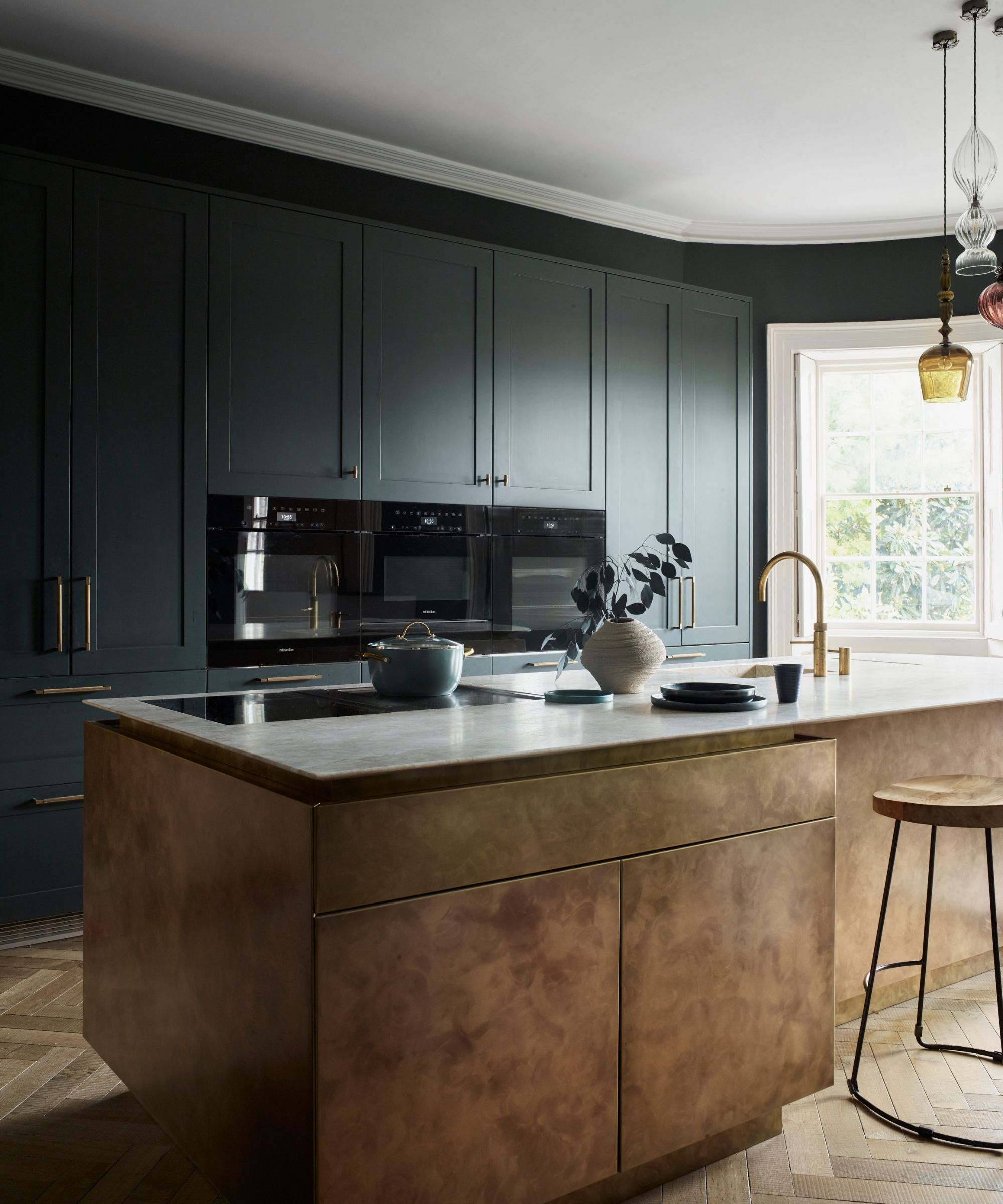
'A stove on the island works well in open kitchen layouts, creating a seamless transition between cooking and socializing areas,' says Sarah Johnson, kitchen and appliance expert at Big Air Fryers. 'It's an excellent choice for those who love the idea of an integrated and inviting kitchen space.
It can provide a central cooking location, making it easier to access kitchen utensils, can facilitate social interaction with guests, and can make for a more symmetrical layout.
'If you enjoy entertaining guests while cooking, having a stove on the island allows you to showcase your culinary skills and engage with others simultaneously,' continues Sarah Johnson.
Having a stove on the island optimizes your cooking workflow and enhances accessibility. By centralizing the cooking process, this allows you to move seamlessly between preparation areas and the cooking station, with easy access from all sides.
Finally, having a stove on a kitchen island provides ample space for both cooking and preparation. This is particularly beneficial for preparing large meals or multiple dishes, resulting in a smoother and more efficient culinary experience.
Benefits of a sink on a kitchen island
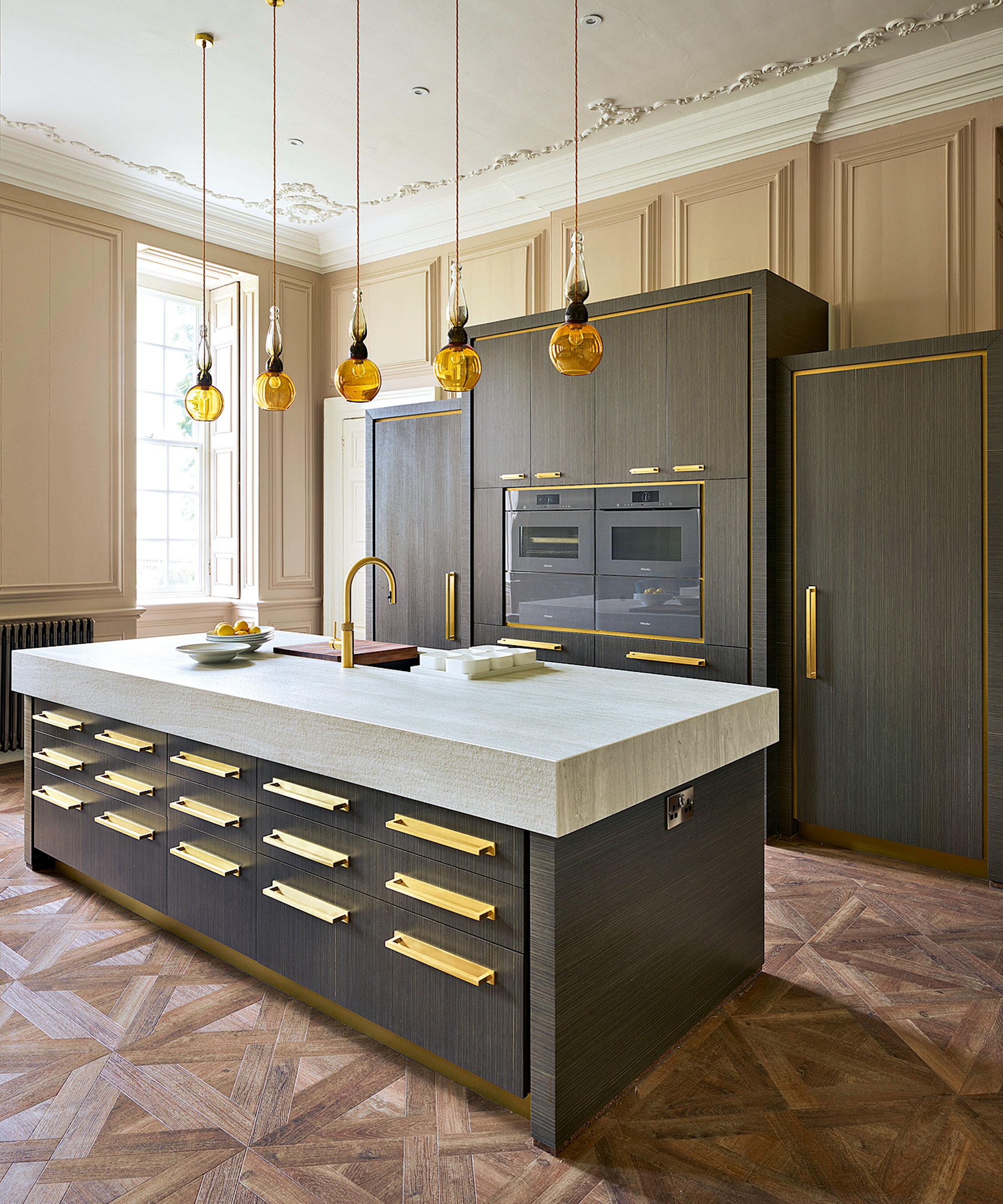
'From a design perspective, a strategically placed sink can be an attractive focal point on the island, adding both functionality and visual appeal to your kitchen,' says Sarah Johnson.
'Modern sink designs can enhance both the aesthetics and functionality of your kitchen island, contributing a sleek, minimalist appearance while facilitating tasks without the need for extensive kitchen navigation.
'Placing a sink on the island can enhance the efficiency of your kitchen workflow. It allows for easy access to water, reducing the need to move back and forth between the sink and other areas of the kitchen.'
'It serves as a dedicated space for efficient food preparation,' adds Karina Newman, home expert and owner of iBuyers. 'This is especially advantageous when you're dealing with fresh produce, as you can wash and chop ingredients conveniently, reducing the need for excessive movement.
'Additionally, with a sink on the island, you create a designated cleanup area, minimizing the need to carry dirty dishes across the kitchen. This setup is practical for maintaining a tidy and organized cooking space.'
Finally, a sink on the island facilitates social interaction while you work. Whether you're washing vegetables or cleaning dishes, you can more easily engage with family or guests.
Cons of a stove on a kitchen island
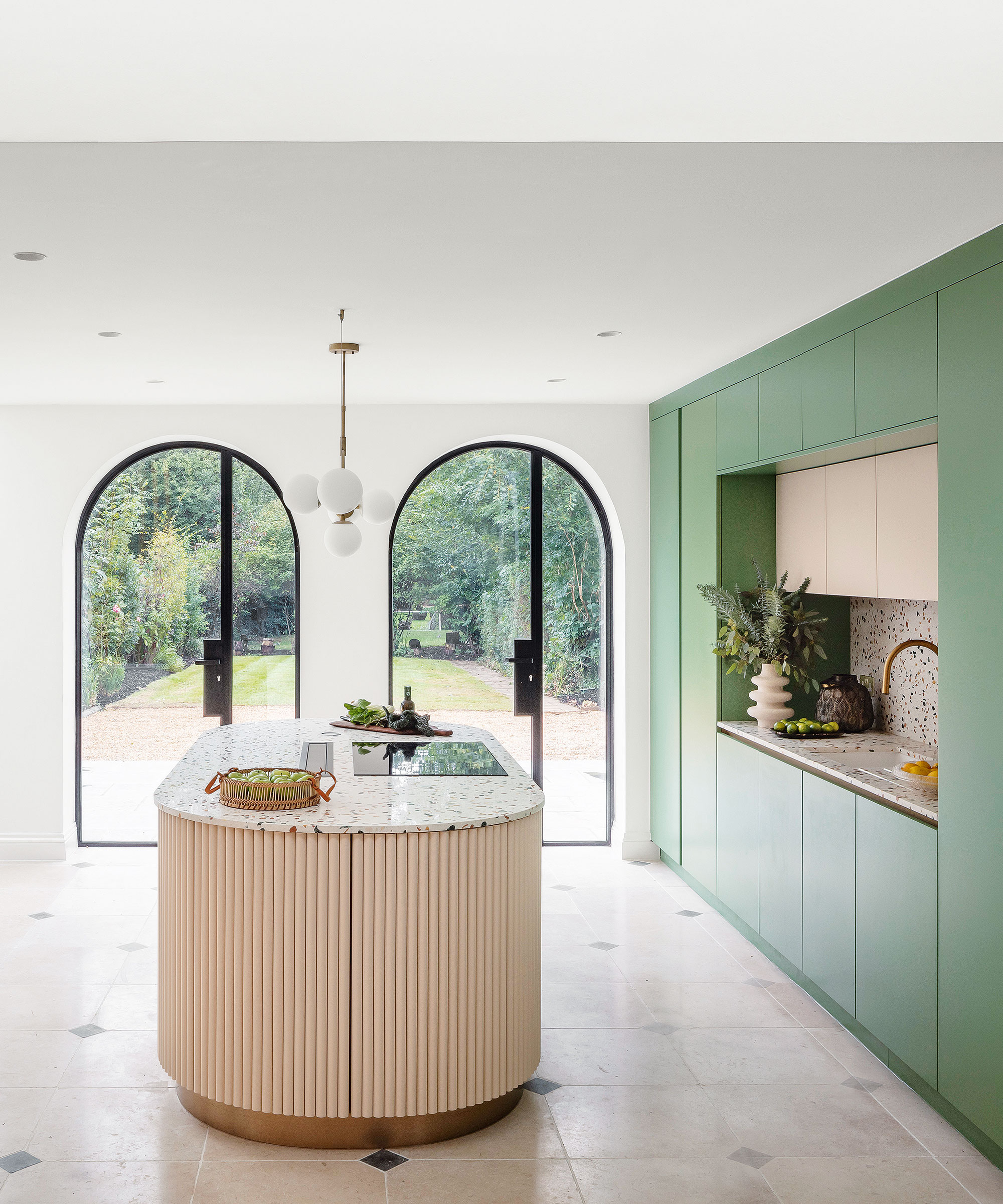
'Having a stove on the island can create potential safety concerns. It may increase the risk of accidental burns or fires due to its proximity to guests or other flammable materials,' warns Dr. David Son, CEO of Kitchens Prod.
You may need to rearrange other elements of the kitchen to prevent safety hazards from forming.
'You'll need to think about how to get gas or electricity to your island if you move your stove there,' explains Kerry Sherin at Ownerly. 'To change the path of your gas lines or the wiring in your home, you might need to hire professionals. Keep this in mind for both the trouble and the money it will cost.
Proper ventilation is also crucial for removing steam, smoke, cooking odors and other impurities from the air that are generated by stovetop cooking.
If you choose to place a stove on your island, ensure that there is adequate ventilation in place such as installing an overhead range hood or downdraft system.
'A floating extractor above the stove, an integrated extractor/stove unit, or a pop-up extractor are all options,' adds Kerry Sherin. 'If none of these alternatives appeal to you, think about using alternate ventilation methods, such as air bricks. An extractor fan is strongly recommended for maintaining good air quality as long as there is appropriate air circulation.'
Cons of a sink on a kitchen island
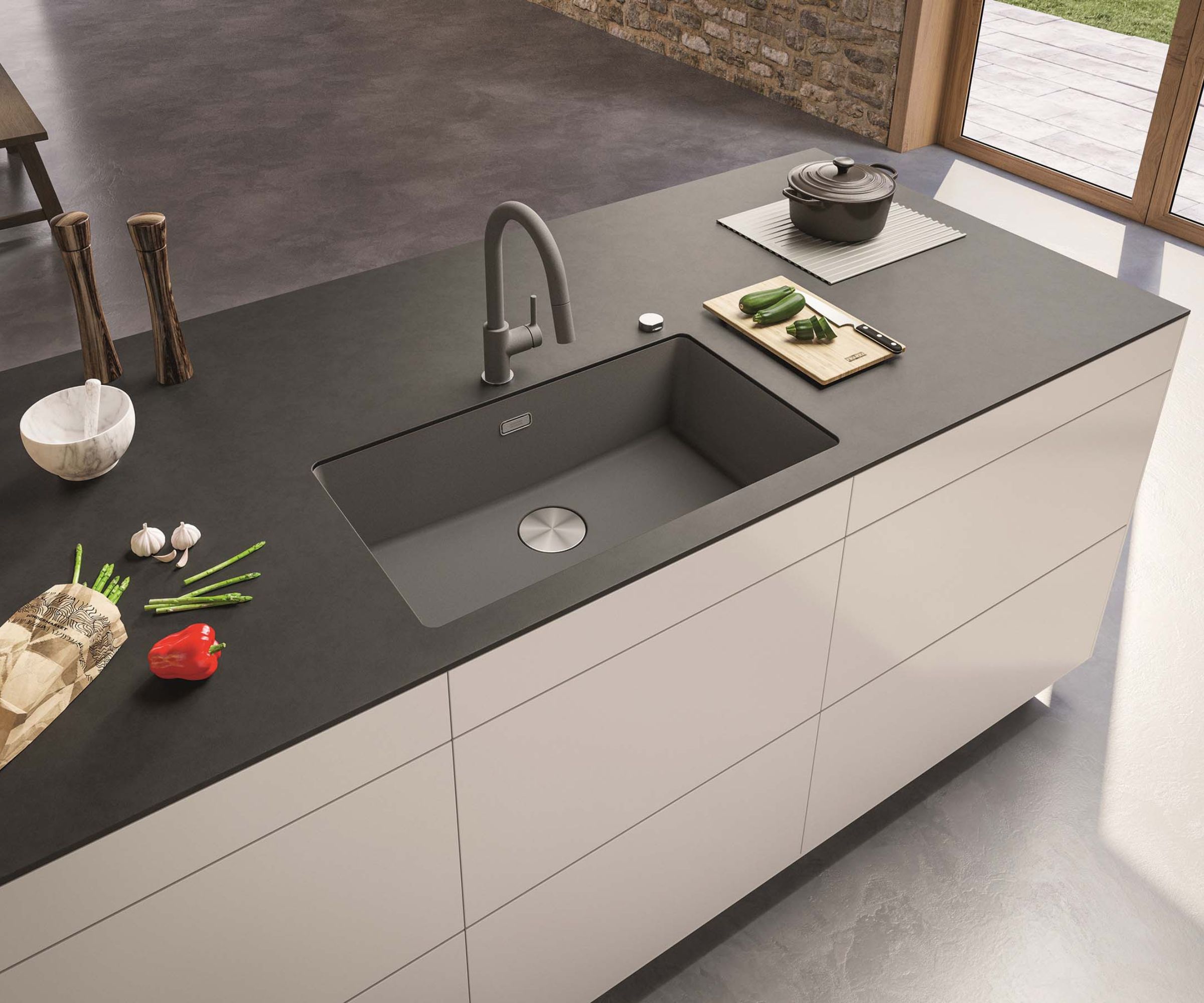
'If you want a sink on your island, you'll need to connect the proper plumbing,' says Kerry Sherrin. 'This can be costly, depending on where your plumbing is currently located.
'Running water and sewage pipes over long distances will almost certainly increase the cost of your project.'
Additionally, the necessary plumbing intervention could impact the design and functionality of the island – it could increase the size of the island, rendering it less convenient.
Balanced design approach
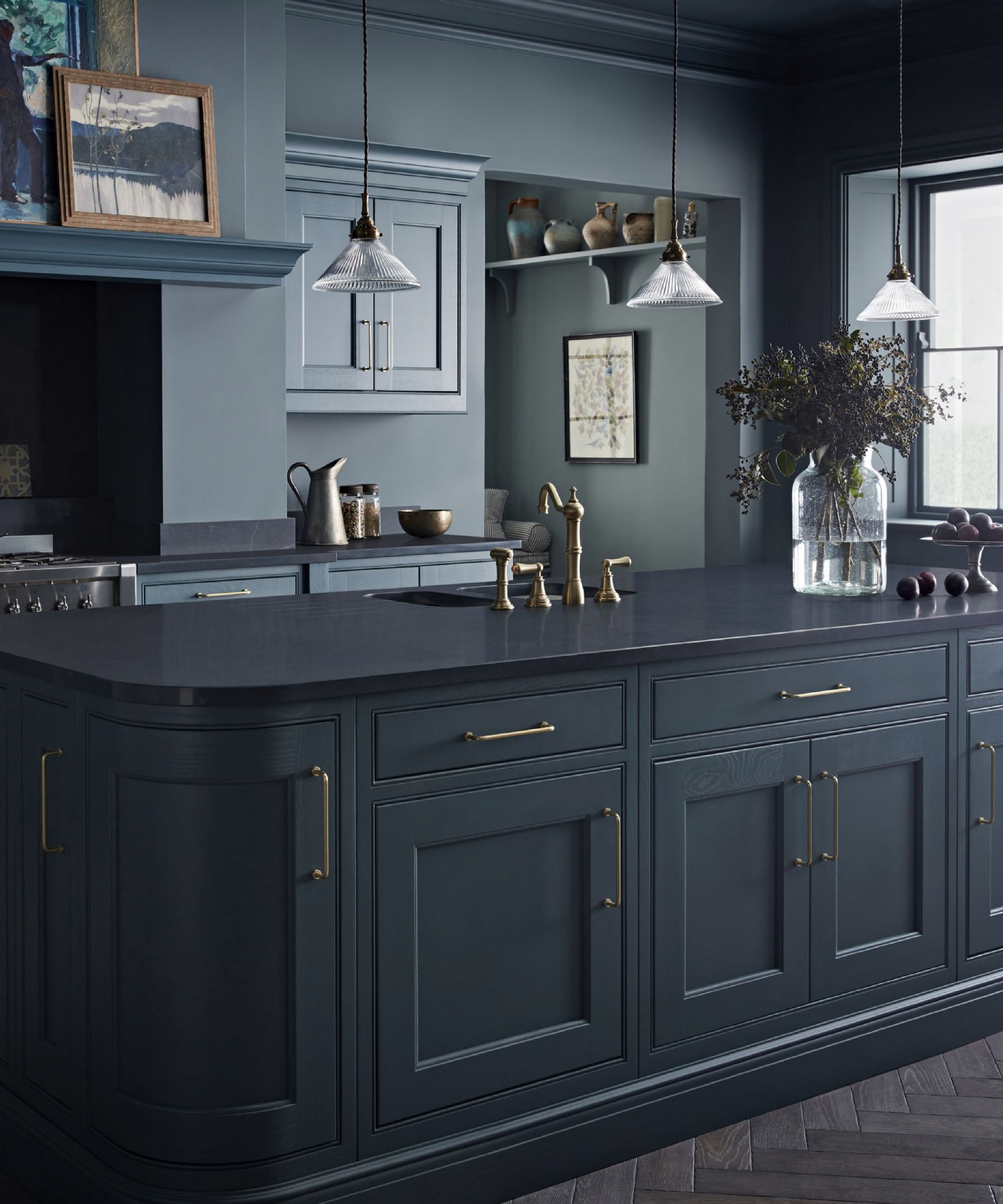
'Some advanced kitchen designs successfully incorporate both a sink and a stove on the island,' says Karina Newman. 'This dual functionality ensures a well-balanced kitchen space that caters to both food preparation and cooking needs.'
'Flow is also important. We want to make sure appliances and countertops are arranged ergonomically without overly complicated foot traffic,' explains Keely Smith, lead interior designer at JD Elite Interiors. 'The classic work triangle between the sink, stove and fridge is ideal. An island needs to complement rather than interrupt that pattern.
'Of course, if you have a truly massive island with room to spare, then by all means you could possibly squeeze in both! Just be sure to leave good counter space on either side of the stovetop.'
'Tailoring your kitchen island to your specific space as well as your cooking habits and lifestyle is key,' says Karina Newman. 'Consider factors such as the frequency of entertaining guests, the importance of multitasking, and your overall culinary preferences,' available space in your kitchen, safety concerns, and budget constraints.
FAQs
How do you reduce food odors when cooking?
'A cooktop can produce cooking odors that require well-designed extraction like a hood vent or downdraft extractor...or both,' says Evan Soltoff, interior designer at Eggersmann.
'Consider the types of foods you often prepare and if they are better cooked further away from people.
'Some homeowners even consider a catering kitchen, appliance-equipped butler's pantry, or wet kitchen to address this issue, especially more pungent cuisines and foods.
'Using a separate room for cooking reduces or eliminates unattractive aromas. But for many, space in a home makes this impractical so placing the cooktop off to the side not only moves the odors away but makes it possible to include affordable heavy-duty extraction without sacrificing aesthetics.'
'If you prioritize efficient workflow, social interaction, and a visually appealing design, a sink may be the ideal choice,' says Sarah Johnson. 'On the other hand, if you see your kitchen as a cooking hub and want to seamlessly integrate culinary activities with socializing, a stove might be the perfect fit.'







